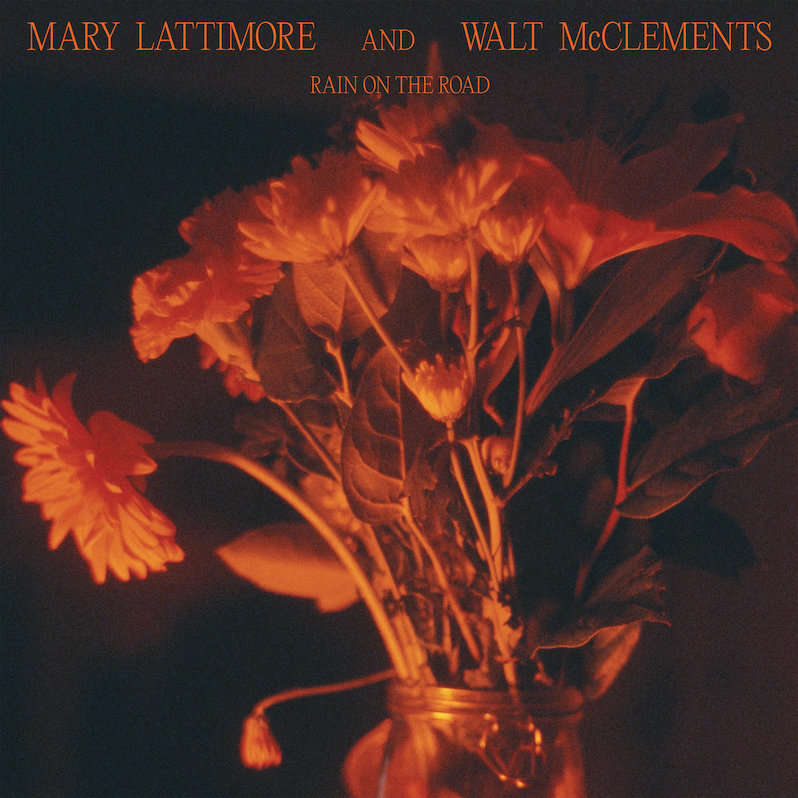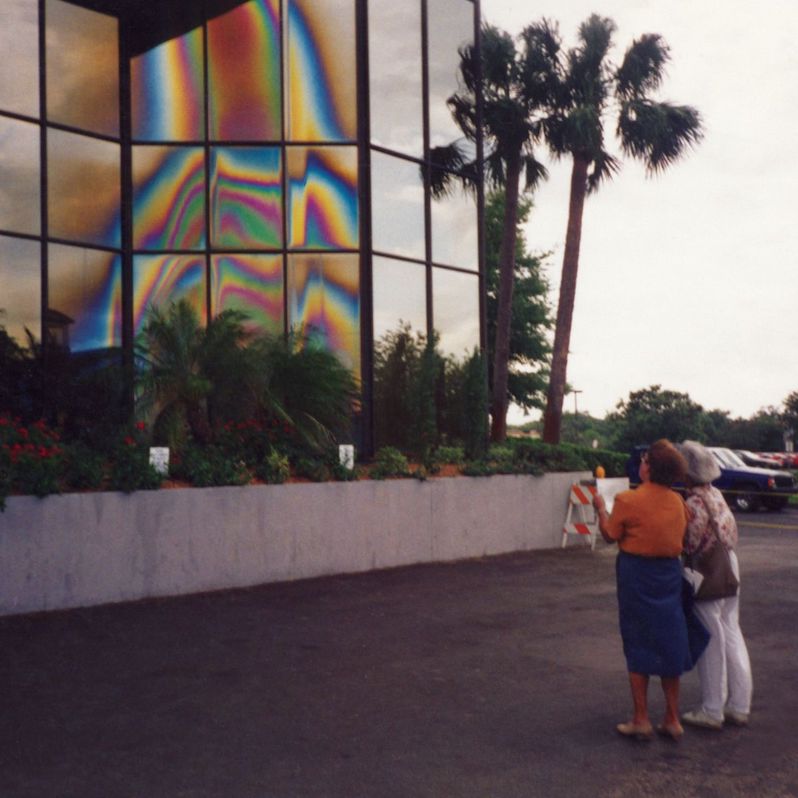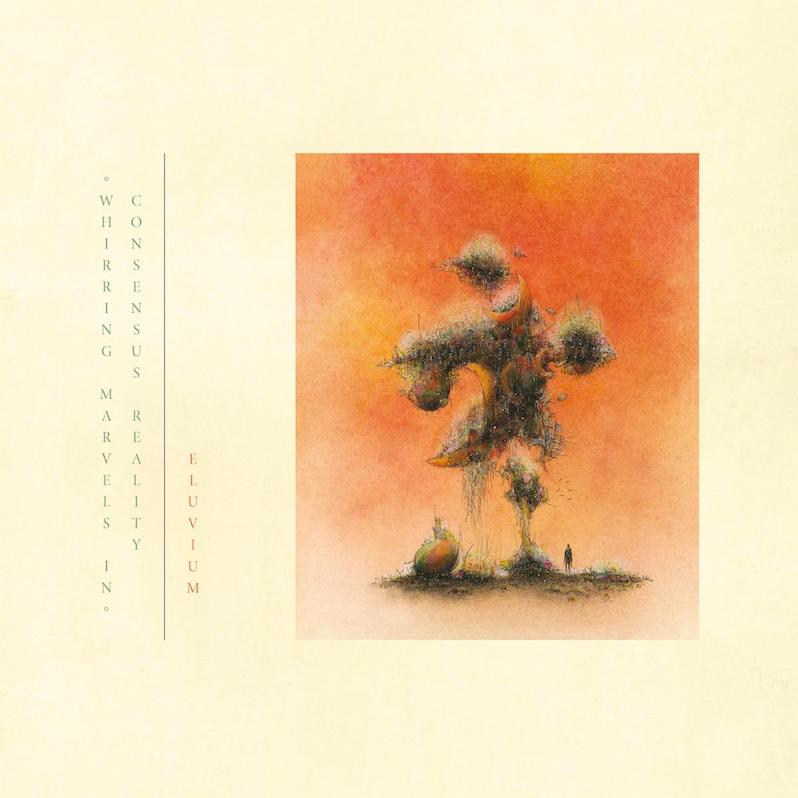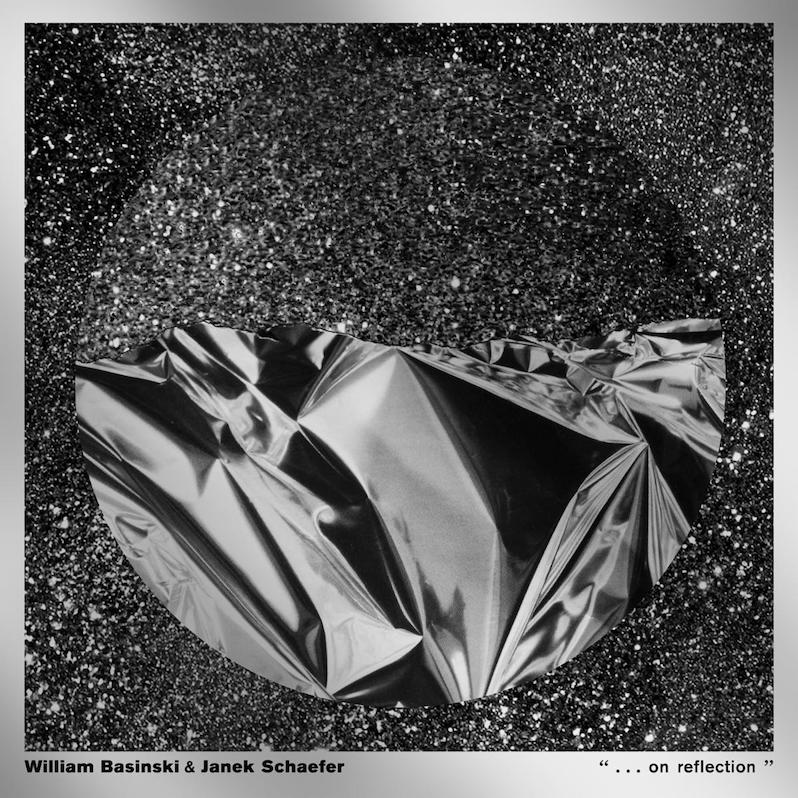Mary Lattimore & Walt McClements : Rain on the Road

I had to let some time pass. When I first heard Mary Lattimore and Walt McClements’ Rain on the Road, I was still in the midst of pre-wedding jitters. I got married at 35, later than most of my friends but about the same time as my father did, or at least his last marriage, after a life with a non-insignificant amount of adventure both requested and unrequested. The record at that time felt like a halo of prickled lights, like watching a corona of lens flashes over my soon-to-be-wife’s head in their simple dress and my gray suit, exactly between funeral blacks and baptismal whites, signifying a life and not a birth or a death. I could not tell whether this was an imposition of my emotional eye or something substantive. More time passes, and our May Day wedding leaves me rimmed with a buzzing corona myself, but now of the pollen-scent bee hum of matrimonial bliss. We waited eight years to get married, even debated never pulling the trigger properly, but eventually fell in just the right kind of love that even all our theory reading on the histories of marriage as practice couldn’t overcome. Still this album felt rose-scented, perfumed with pews and the light sugared air of tall cakes in afternoon sun. So still I waited.
But time has passed now, two weeks before and after the wedding, and that same almost holy glow persists here, something just a bit too active tense to properly be called ambient music but still docile and gentile enough to become adequate wallpaper for the shape of days. The proper term here I believe is “library music,” something of a keening beauty that one could easily imagine scoring nature footage or photos of weddings or the nostalgic peaceably of images of children at play. Perhaps it is my softening heart and growing fondness for nostalgia of a sort that sees this as a positive rather than, what did I use to call it?—the proto-fascist monument-making of the nostalgic eye. You learn over time how your quickness of wit and letters in youth does not always match the wisdom you thought you possessed.
Take for instance the closing track “The Top of Thomas Street,” with its staggered piano, like a man freezing slow to death is playing out his final testament on the ivories. Listen to how its staggered rhythm reminds you “Pyramid Song” by Radiohead but its melody sounds closer to “Videotape,” feeling less like a copy and more like an astute rarefication of the sentiment. This comes after three pieces of decreasing volume, the main body of the record, which swirl around images of herb gardens and tangled—ah their title is simply perfect!—nests of earrings, like a child’s hand tilting open the top of your mother’s jewelry box, seeing necklaces and improperly stored rings and earrings and pendants tangled in gold-and-silver knots.
A bell opens the record, or rather the creak of an iron bell upon its rod that precedes the toll. It sings in that deadened iron bell tone not quite like a church bell: almost more a prayer bowl, a Buddhist invocation. The synths which and chimes which enter feel like icy mist; I cannot help to see Connecticut in this record, my grandmother’s small town where she raised my mother and my aunt and uncle. Her name was Mary too; perhaps it was inevitable I would see these shapes in this album. What matters here is Lattimore and McClements’ capacity to make something so immediately intimate, feeling like the natural hum and glow of your own memories, the uncanny capacity to score thoughts and feelings that didn’t possess or even have access to. That this follows collaborations Lattimore has made, in a history of collaborations that sees her as radically transformative a creative peer as The Body have proven themselves to be in more extreme waters, that included sound collage and found-sound work. I imagine in my perfect world a meeting between Lattimore, The Body and claire rousay to discuss methodology (all of whom have released music on Thrill Jockey, for the record). But McClements is no slouch here either, proving capable of adding a fullness that escapes feeling dense or oppressive, even as its layers build. And, apropos of nothing, the title of the second track, “The Poppies, The Wild Mustard, The Blue-Eyed Grass,” is one of the most effortlessly beautiful titles I’ve read in a long while. A treasure.
Label: Thrill Jockey
Year: 2024
Similar Albums:
Langdon Hickman is listening to progressive rock and death metal. He currently resides in Virginia with his partner and their two pets.




